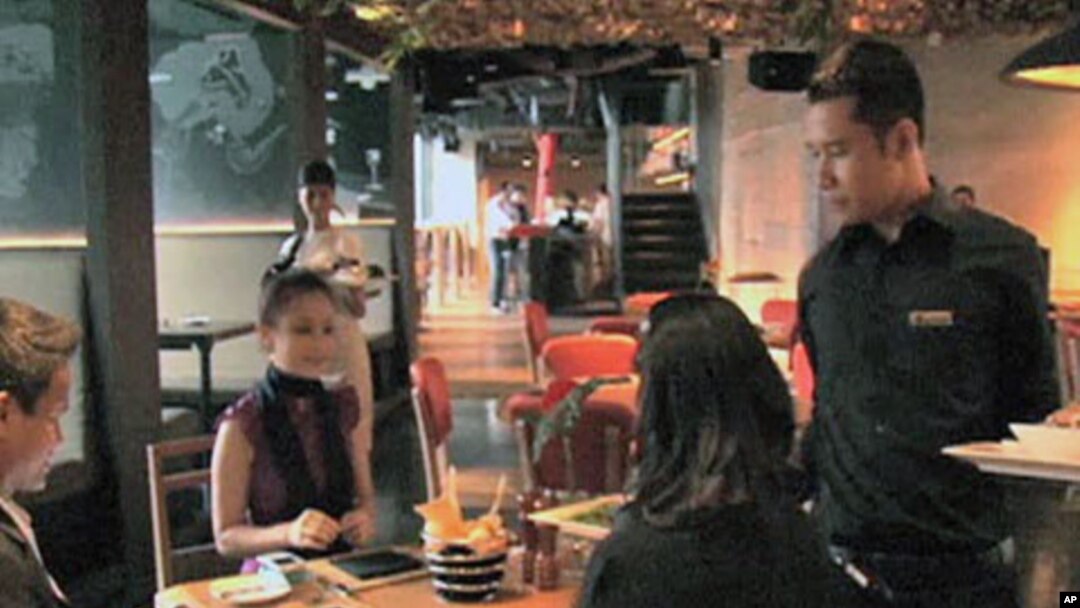As many countries in Asia continue to show steady economic growth, multinational corporations are not the only businesses looking for opportunities. The economic slowdown in the U.S. and Europe, and the growing middle class in countries like Indonesia, are motivating even some small businesses to expand their operations overseas.
The grand opening of Smoking Joe's Barbecue and Lounge, complete with a rock band and parade of models, is aimed at spreading the word about this new upscale restaurant that serves traditional American slow-cooked barbecue in Indonesia’s capital city.
For Joel Rozelle, the founder and chef of Smoking Joe's, this lavish affair is a good beginning for his first business venture outside of the United States.
“I was born in the U.S. I spent all of my life in the U.S.," he said. "I, of course, have traveled abroad, never been to Asia. But I feel very much at home here.”
His decision to expand operations to Indonesia follows a trend set by big investors. It also reflects the World Bank's prediction that emerging economies like Indonesia will far outpace growth in advanced countries in the next 15 years.
Indonesia's abundant natural resources, including coal, oil and gas, continue to attract the majority of foreign investment.
The country's relatively low wages and stable political environment also have encouraged some international companies to open manufacturing operations.
But for Rozelle, who owns four barbecue restaurants in the midwest American city of St. Louis, Missouri, these macro economic indicators did not entice him to move to Asia. Instead, opportunity found him.
Indonesian businessman Sammy Bolung and his wife were in St. Louis on business when they first went to Smoking Joe's for dinner. The meal was a hit.
“I had the combination platter, the pork ribs, beef brisket, sweet potato fries, everything," said Bolung. "And Joe even gave me the turkey, everything.”
“Every night for the next five nights they came back to Smoking Joe's and he starting asking more detailed questions,” said Rozelle.
And from there a U.S.-Indonesian partnership was formed.
But despite the successes of these small scale joint ventures, the U.S. Ambassador to Indonesia, Scot Marciel, said some U.S. companies are still reluctant to invest in Indonesia.
“But to be honest there is still some concern," he said. "They look at the... I think it's the World Bank's survey of doing business, ease of doing business. Indonesia frankly ranks very low.”
Some investors worry that corruption, cumbersome regulations and restrictions on foreign ownership in Indonesia make running a business there too daunting.
But Rozelle said his experience has been positive. And he is optimistic that his special barbecue blend and authentic slow cooking style will be popular in Asia.
“I like the fact that I've got a whole different group of people that has, for the most part, have never tasted American style barbecue the way it should.”
Rozelle and Bolung are already making plans to open Smoking Joe's restaurants in Bali, Singapore and Taiwan.


